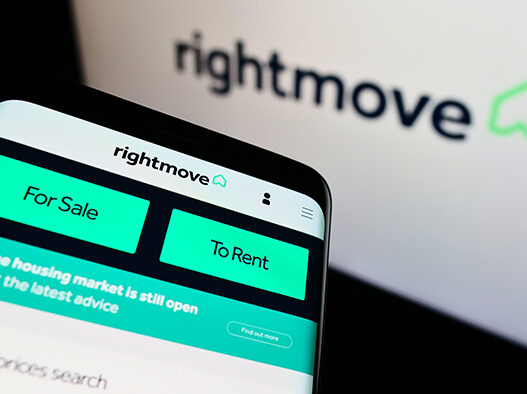Leasehold rights campaigners are optimistic that after years of disappointment, meaningful change is finally on the way.
The government has promised to “act swiftly” to implement the Leasehold and Freehold Reform Act 2024, which was rushed through in the final days of the last parliament but still requires secondary legislation to come into effect.
Furthermore, Keir Starmer's Labour government has promised to go beyond this initial bill and bring forward a draft Leasehold and Commonhold Reform Bill which aims to “end the feudal leasehold system, revitalise commonhold through a comprehensive new legal framework and make commonhold the default ownership interest by banning the sale of new leasehold apartments”.
The great thing about leasehold and commonhold reform is that it won't cost the taxpayer a single penny.
This is not the first time that a government has made bold promises about leasehold reform only to have them watered down by the freeholder lobby, so why do campaigners feel this time is different?
Bipartisan Support
Harry Scoffin, founder of Free Leaseholders, said: “In the last general election, almost 84% of voters – more than 24 million people – voted for parties whose manifestos promised that the new government would tackle leaseholds – Labour, the Conservatives, the Liberal Democrats and Reform UK.”
“There is now unprecedented bipartisan support for phasing out this quasi-feudal property system that traps people in nightmarish, expensive bondage to unaccountable and often unknown landlords.
Helping future renters is a good thing, but don't leave existing renters behind.
“We know that leasehold is a hot topic in several of Labour's election wins, so it's no surprise that the party's leading MPs have already raised the issue in their maiden speeches and in the media. As a result, this government faces more pressure than any other to abolish the exploitative leasehold system as part of tackling the house price crisis and promoting economic growth.”
First step: Enforce existing laws
Labour has pledged to complete the Conservative government's Leasehold and Freehold Reform Bill, which received royal assent just before the election but requires secondary legislation to come into force, before embarking on its more ambitious plans.
Jonathan Frankel, partner at Cavendish Legal Group, said: “Labour must prioritise invoking this existing law before introducing new initiatives, otherwise its proposed legislation risks distracting attention from the implementation of the law in 2024 and causing further delays for leaseholders.”
There is a lot of confusion among buyers and something needs to be done.
So what improvements does the first law bring to tenants’ rights?
Firstly, it will increase the standard lease extension period to 990 years, giving leaseholders greater certainty of tenure.
This would also mean leaseholders would no longer be forced to make repeated payments to extend their leases as they near the 80-year mark.
The legislation will require freeholders and management agents to use a standard format for invoices to make service charges more transparent and easier to challenge.
Under the new rules, it should become cheaper and easier for tenants to exercise their rights to take over management of the property, buy the freehold, and challenge unjustified claims, as they will no longer automatically have to pay freehold legal costs.
Solicitors are supposed to advise purchasers on this, but in some cases they fail to discuss it properly with their clients.
Additionally, leaseholders will no longer be required to own a property for two years before extending their lease or buying the freehold. New leasehold housing sales will be banned and hidden insurance fees will also be banned.
Renters can also take advantage of the compensation scheme.
Phase 2: Labour's plan for further progress
The King's Speech also promised that Labour would introduce a further draft Bill, the Leasehold and Common Land Reform Bill, which goes beyond the legislation passed by the Conservatives.
This has led to the new government saying it will implement the remaining recommendations made by the Law Commission in 2020, including proposals to make it cheaper for leaseholders to buy their freehold interests – a process known as enfranchisement.
This is unfinished business for Labour – after all, it was they who gave leaseholders the right to buy the freehold in the 1960s.
According to documents released alongside the King's Speech, the draft bill would tackle “high unregulated ground rents” and remove “the disproportionate and draconian threat of confiscation as a means of ensuring compliance with leases” – the right of freeholders to seize property for unpaid charges, even if they are small.
The government also promised to “revitalize the commons” by “modernizing the legal framework” and restricting the sale of new leasehold apartments. The government said it would “consult on how best to achieve this, so that future generations can benefit from full home ownership.”
Finally, the draft bill seeks to abolish unjustified maintenance fees on so-called privately owned homes.
Sebastian O'Kelly, chief executive of the Leasehold Knowledge Partnership, said the fact that many Labour MPs have been working on leasehold issues on behalf of their constituents for many years meant there was a strong push for change, as these issues made up a large proportion of their caseloads.
Real estate agents aren't helpful as they often don't include rental terms and other important details in their property listings.
“Labour clearly has more urban councillors than the Conservatives,” O'Kelly says, “though some suburban Conservative councillors were very enthusiastic about fleeceholds. But Labour councillors are much more knowledgeable.”
“We have fantastic people like Hilary Benn and Clive Betts, who are experienced MPs who have done a fantastic job on building safety issues.”
Mr O'Kelly added: “We need to put pressure on Housing Minister Matthew Pennycook to get reforms done. There should be no serious opposition to reform, especially given that the Conservatives were advocating it only a few months ago.”
Preparing for action
Scoffin shares O'Kelly's confidence that the new administration is ready to act on this front.
“Starmer's Labour party is less divided on this issue than Sunak's Conservative party and less beholden to the interests of the freeholder lobby,” he said.
Several seats won by Labour in the election are known to be rental housing hotspots.
“The great thing about leasehold and common land reform is that it is a retail policy, it is hugely popular and it won’t cost the taxpayer a penny.
“It's unfinished business for Labour too – after all, it was Labour that gave leaseholders the right to buy their freehold in the 1960s and introduced a fairer system of common inheritance at the turn of the century. Watch out for Matthew Pennycook in the Opposition, who has a brilliant grasp of detail and a drive to deliver.”
Katie Kendrick, founder of the National Leasehold Campaign (NLC), is also optimistic that change is indeed on the way, but says past disappointments leave their mark.
She says: “As the years go by we have become more and more cynical. Words are meaningless without action and we are yet to see any action to help existing tenants who are in limbo.”
No one can seriously pressure Housing Minister Matthew Pennycook into making any reforms.
“The Conservatives have had 14 years to change the status quo but we are still locked into the system. Now Labour is at the helm and all leaseholders can do is hope that everything they say on this issue comes to fruition. I am confident they will be successful.”
Kendrick says it's a good sign that leasehold reform featured in the new government's first King Speech, with the government promising to “act swiftly” to implement it. His big concern is support for existing leaseholders who are locked into contracts with rising rents.
“The question is whether the new administration will cap existing ground rents. There are many leaseholders who are unable to sell their properties because of ground rent terms, service charges, short leases and safety defects in their buildings. Many mortgage lenders will not lend in situations where ground rents are rising – they will not lend at more than £250 a year, or 0.1% of the property value.”
“Helping future renters is a good thing, but current renters should not be left behind. We currently have a two-tier system and the Government needs to address this imbalance as a priority.”
Labour must prioritise invoking existing laws before introducing new initiatives
Still, Kendrick says the NLC team remains optimistic that meaningful change and support will come soon.
Broker's Charges
Jane King, director at Ashridge Private Finance, says it is often the job of brokers to deliver the bad news to borrowers who don't understand what a lease on their dream home means.
“There's a lot of confusion among buyers and something needs to be done,” she says. “Estate agents often don't include rental terms and other important details in property listings, which doesn't help.”
“Lawyers are supposed to advise buyers on this, but in some cases they aren't discussing it properly with their clients.”
“There are so many apartments with short leases, owners can't afford to extend them and no bank will lend to them, which means they can't be sold unless there's a cash buyer.”
There is now unprecedented bipartisan support for phasing out this quasi-feudal property system.
King says the sooner the reforms come the better, as many customers are in limbo, waiting patiently for reforms to make lease extensions cheaper.
The new Cabinet will be faced with many competing priorities when it returns from the summer recess. In the housing sector alone there are big promises – planning reform, boosting housebuilding and banning no-fault evictions in the rental market – that will require attention and Parliamentary time.
But years of broken promises have worn down the patience of five million leaseholders and activists will continue to speak out.
This article appeared in the September 2024 issue of Mortgage Strategy.
If you would like to subscribe to our monthly print or digital magazine, please click here.






















